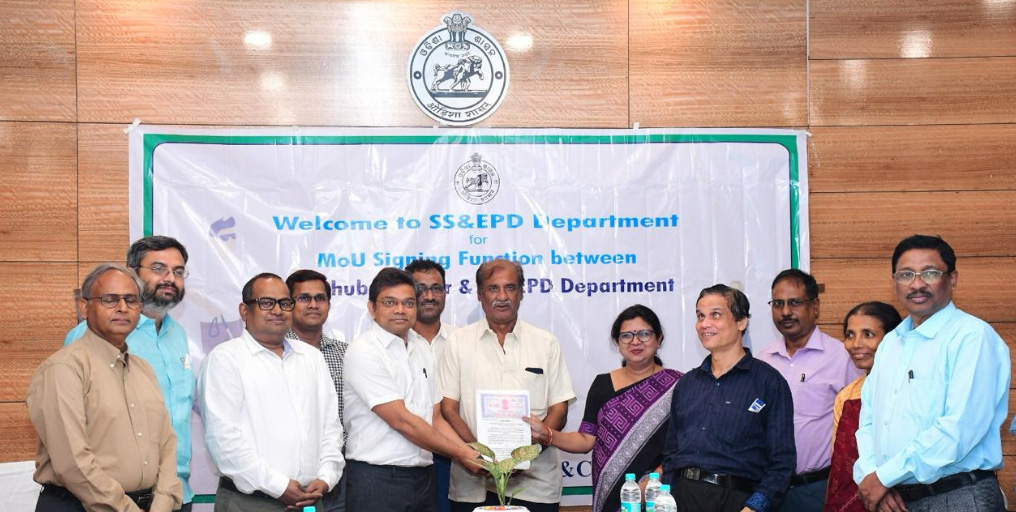Bhubaneswar: The Department of Social Security & Empowerment of Persons with Disabilities (SSEPD) today signed an MoU with Indian Institute of Technology (IIT), Bhubaneswar, to support children with visually impairment.
The MoU was signed between the SSEPD and IIT, in presence of SSEPD Minister Ashok Panda and Principal Secretary Bishnupada Sethi here.
According to the 2011 census, there are about 2,64,000 visually challenged individuals in Odisha, with 10,472 of them being children. State-funded specialized schools for the blind are frequented by a significant number of visually impaired students. Additionally, Braille textbooks are provided at the assurance of the Odisha Government.
After completing their primary education, students enrol in conventional universities and institutions to pursue higher education. During this period, the task of inclusion becomes challenging as college students are required to engage with numerous texts and reference books in order to get a comprehensive comprehension of various subjects, the Principal Secretary said.
Obtaining timely access to all these Braille materials presents a hurdle. Furthermore, the vast majority of their acquaintances and educators are unfamiliar with Braille, resulting in their isolation, Principal Secretary Shri Sethi said.
Moreover, all Government positions that offer reservation for visually impaired individuals are designated under the assumption that individuals with blindness or low vision possess the ability to independently read and write in standard script using computers.
Nevertheless, students persist in employing writers for their writing needs. Consequently, the majority of individuals who are blind or have limited vision are unable to qualify for the employment designated for them.
In the past 10 years, improvements in assistive technology, particularly with regard to computers, tablets, and smartphones, have made it possible for individuals with visual impairments to read and write in standard script on par with sighted individuals, he pointed out.
With the use of suitable screen reading software and a few software applications on a computer, tablet, or smart phone, individuals with visual impairment can effectively access digital books and online content in various Indian languages. Additionally, they can also write in their preferred language, similar to individuals without visual impairment.
The collaboration will support the blind students at IIT Bhubaneswar with engaging Exclusive Tinker Lab as technology and training partner.
The project will be focusing on modern learning via Coding, Micro bit, 3D printing, Games and Animations, Mobile Apps, Machine Learning, Artificial Intelligence, Robotics among school students with Visually Impairment.
The Government would provide tabs and smartphones to students with visually impairment studying in secondary and higher secondary schools of Odisha.
The Institute would provide necessary support for online classes, career guidance, counselling sessions, soft skills, interview guidance, communication skills and computer training.
Similarly, a sheltered workshop will be set up to introduce the students with various job fields and prospective employment. Training on personality development and effective communication skills will be provided to the blind children.
Through this project, the Government has also planned to set up a Digital Library for students with visually impaired verbal processing difficulty and dyslexia to provide them with accessible study materials and to support them with Audio Books and Braille Books.
Kibo Device to be distributed to visually impaired students in high school and higher secondary school.
Besides, a recording lab to be set up for creation of digital content in Orissa Association for the blind Bhubaneswar. Training on Self-Defence, yoga and meditation, health and fitness will also be provided to the blind students.
After implementation of the project, the Government expects that students’ knowledge of contemporary learning will be expanded via mobile applications, machine learning, artificial intelligence, and robotics. Students will have easy access to digital accessible textbooks created from audio books and Braille books.
The blind Students will have better conceptual understanding and barrier free pursuing of broad subjects.


